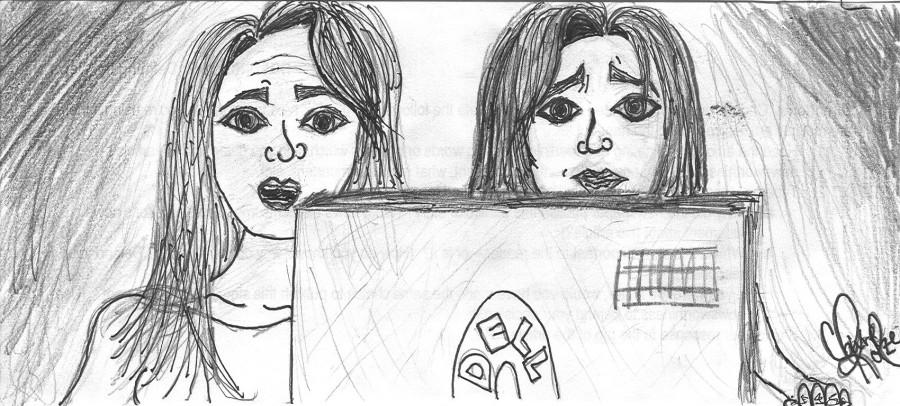Lawmakers in America created the Bill of Rights to protect the citizens of this country; unfortunately, the First Amendment is not protecting anyone when teenage girls are allowed to post sexual and suggestive photographs on the internet through their right to freedom of expression.
In a recent Indiana court case, two girls, ages 15 and 16, sued their school over their year-long suspension from extracurricular activities due to suggestive photos the pair posted on their Facebook pages, according to an August 2011 article from the Huffington Post. While none of the girls in the photos were naked, one girl was only wearing underwear in multiple pictures. The images were graphic in nature and should not be online.
The judge sided with the girls. As American citizens, they do have freedom of expression. The judge decided the First Amendment means they have the right to display their own bodies in lewd photographs because they own their own images.
The court made a partially correct decision, unfortunately. If posting the pictures was illegal, the school could have punished the girls. Because the girls were within their rights to post the pictures, there could be no ramifications from the school or otherwise. The problem becomes distinguishing the difference between having freedom of expression and creating child pornography. In these girls’ pictures, they were acting out lewd situations and posing in suggestive ways. Their pictures should be considered child pornography because of the provocative nature.
“It’s not black or white if a photograph is lewd,” said Mary Stanton, member of the Cyber Crime division of the Illinois State Attorney’s office. “You have to look at the image itself, if the focal point or the setting is sexually suggestive.”
By Stanton’s definition, the photographs the girls took and posted were lewd and therefore constitute child pornography. The judge should not have allowed the girls to post these pictures.
Even though the girls own their own images, anyone can take the pictures from the girls’ Facebook pages and save them to a different computer. Even though the intent was not creating pornography, it is impossible to control where the pictures could end up after they are originally posted on one’s Facebook account. The distribution of these photos is illegal, so posting the images on Facebook should be illegal as well.
From 2009-2011, multiple states discussed passing legislature concerning the legality of sending inappropriate or graphic pictures of oneself through an electronic device, according to the website for the National Conference of State Legislatures. The Indiana legislation failed in 2010, but in 2011 ‘sexting’ did become illegal in Indiana. The law only specifically relates to cell phones though, and only mentions computers in the context of cyber bullying. In Illinois, however, the law states it is illegal for a minor to “transmit” photographs of him- or herself that are graphic in nature through any electronic device.
The problem is the word “transmit” creates a gray area because the word indicates sending. Sending photographs of sexual nature through text messages and emails are easy to define as transmitting. Lawmakers must now address the issue of social media and social networking. If uploading pictures to one’s Facebook is transmitting, then the girls’ pictures are in the class of child pornography, First Amendment rights or none. The Indiana judge did not have to consider this issue, but Illinois courts have already decided that uploading suggestive pictures to Facebook or Myspace constitutes transmitting.
“It does not matter who is in the picture,” Stanton said. “Uploading the [lewd] image is still illegal.”
Illinois law is not clear enough on what exactly constitutes an illegal picture when it comes to social media because there is still room for different interpretations. Multiple states, such as Indiana, do not have legislation concerning the issue of social media at all. This needs to change.
Laws need to keep up with the technology available to the general public in order to protect those who may not realize the harmful affects of posting their graphic pictures on social media. The laws should be specific about what is illegal when it comes to technology and social networking. Anyone under the age of 18 should not legally be allowed to post lewd or suggestive pictures through social media because, no matter what the intent, once a photo is online, anyone can view, save, and manipulate that image.

